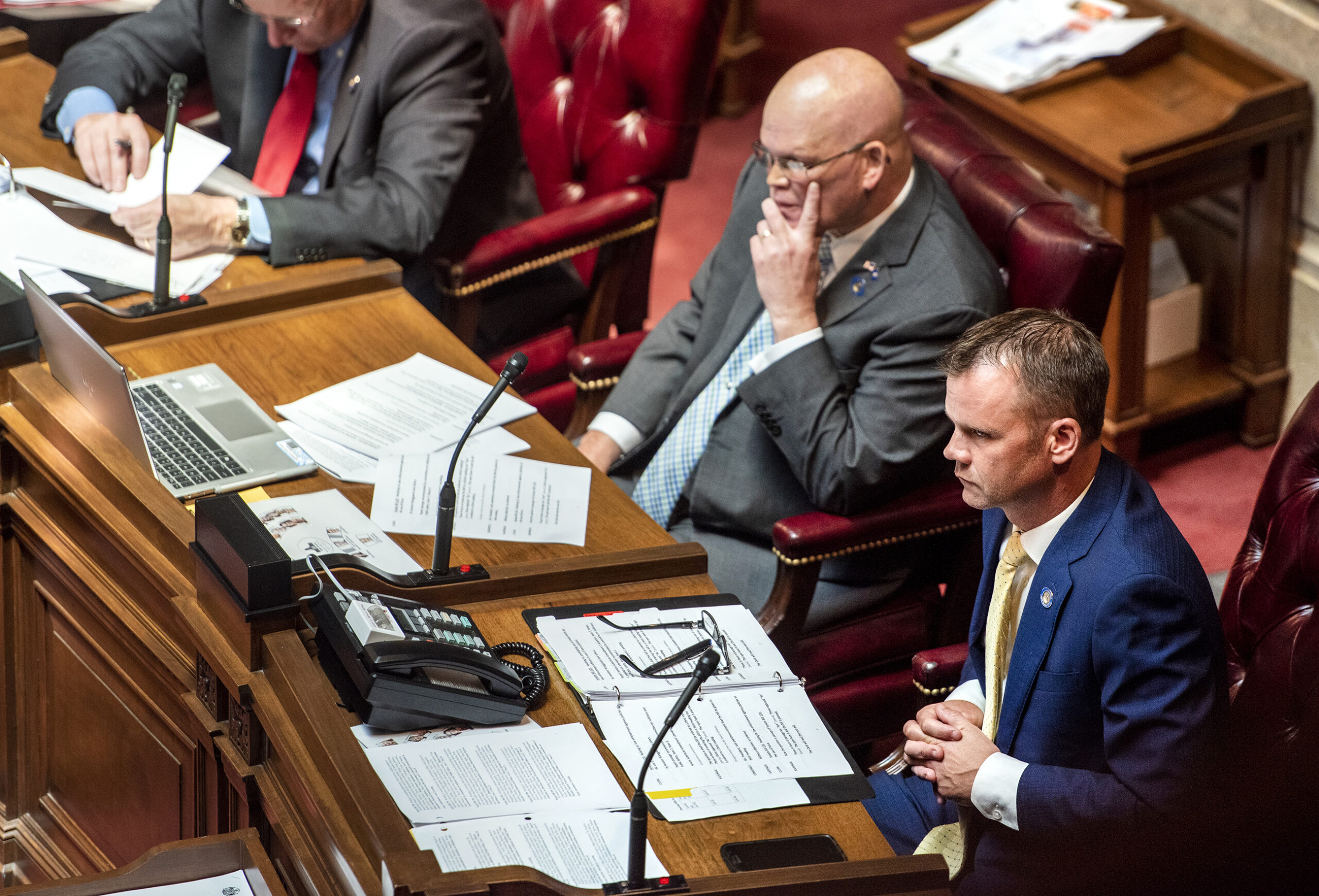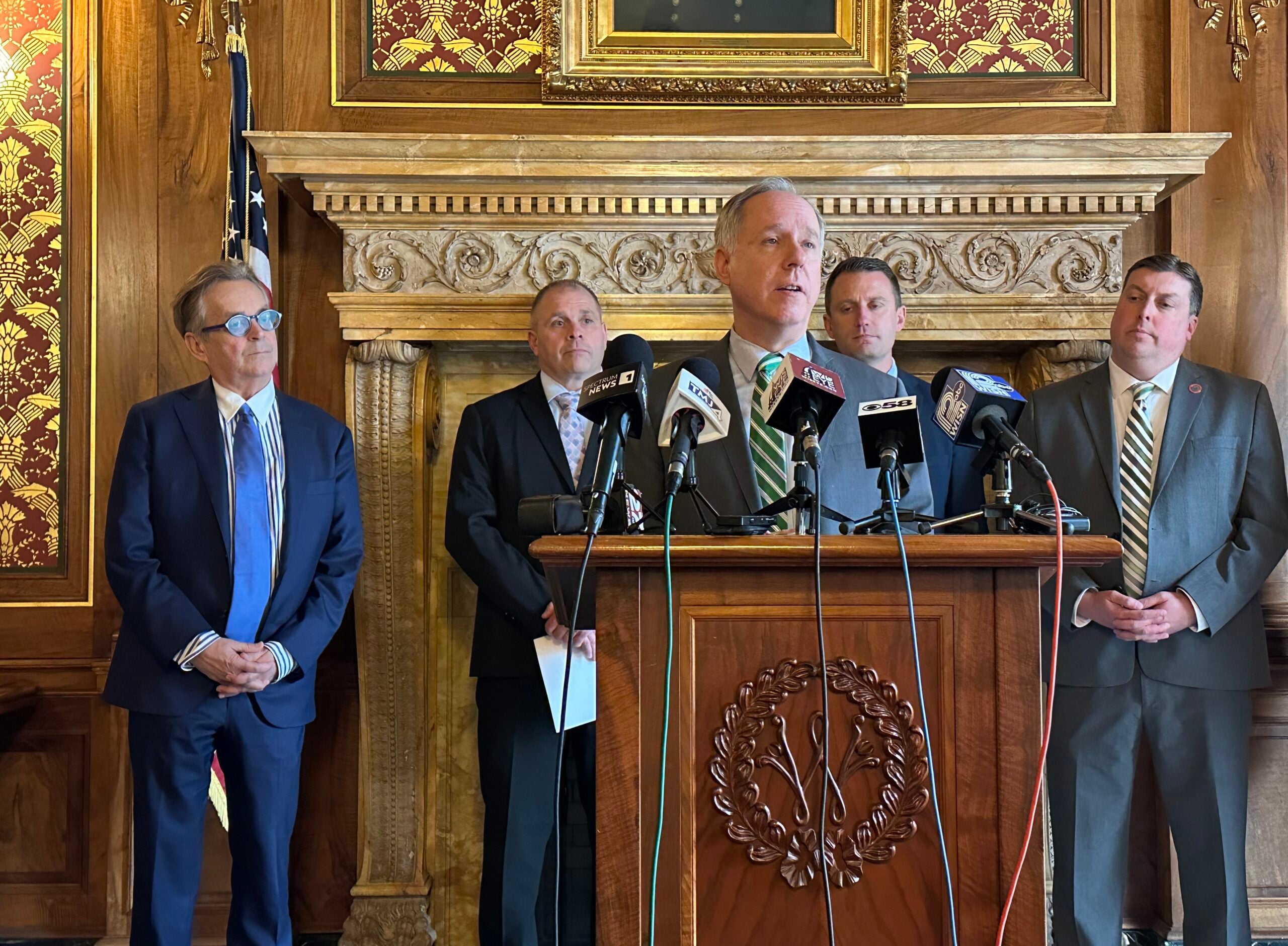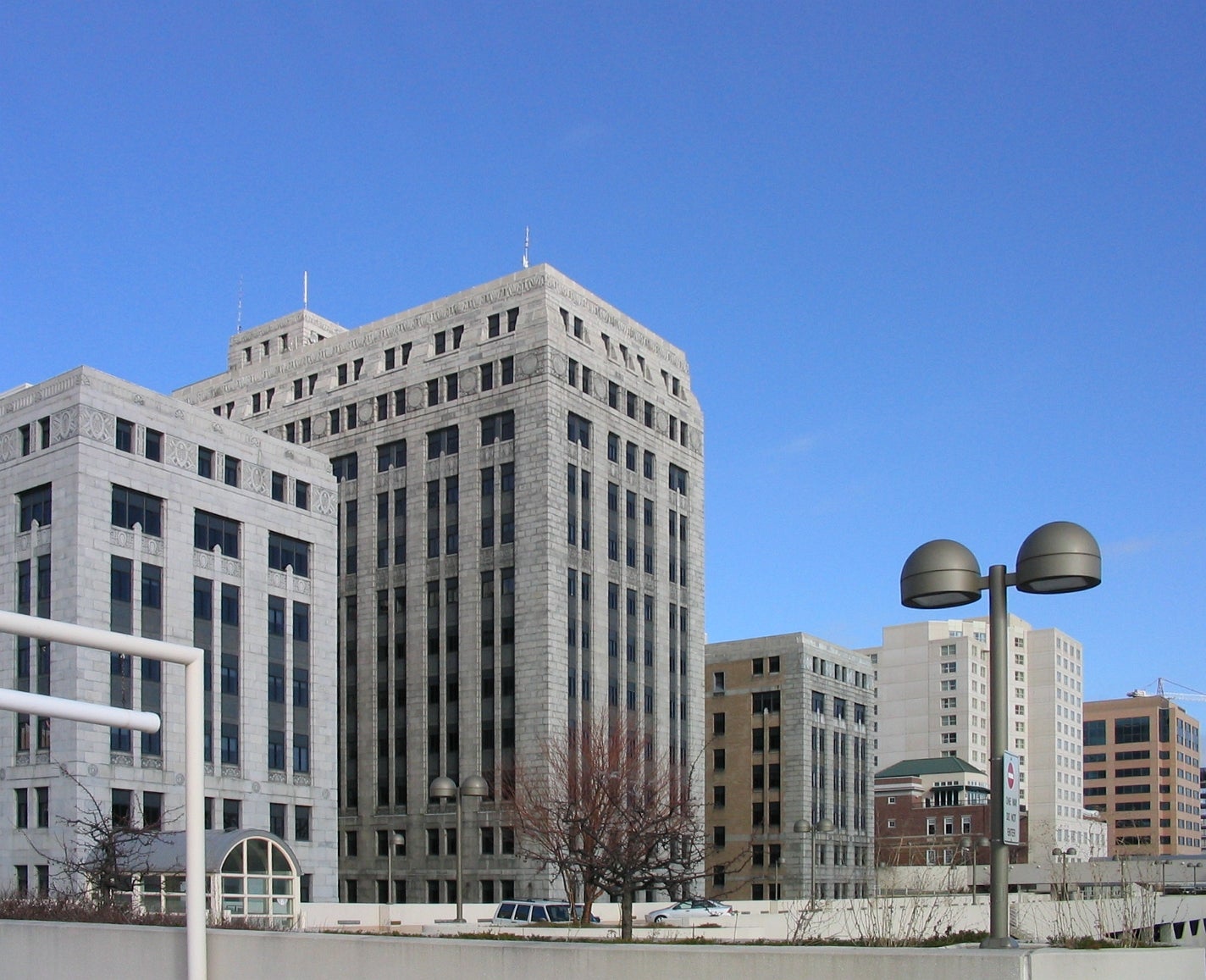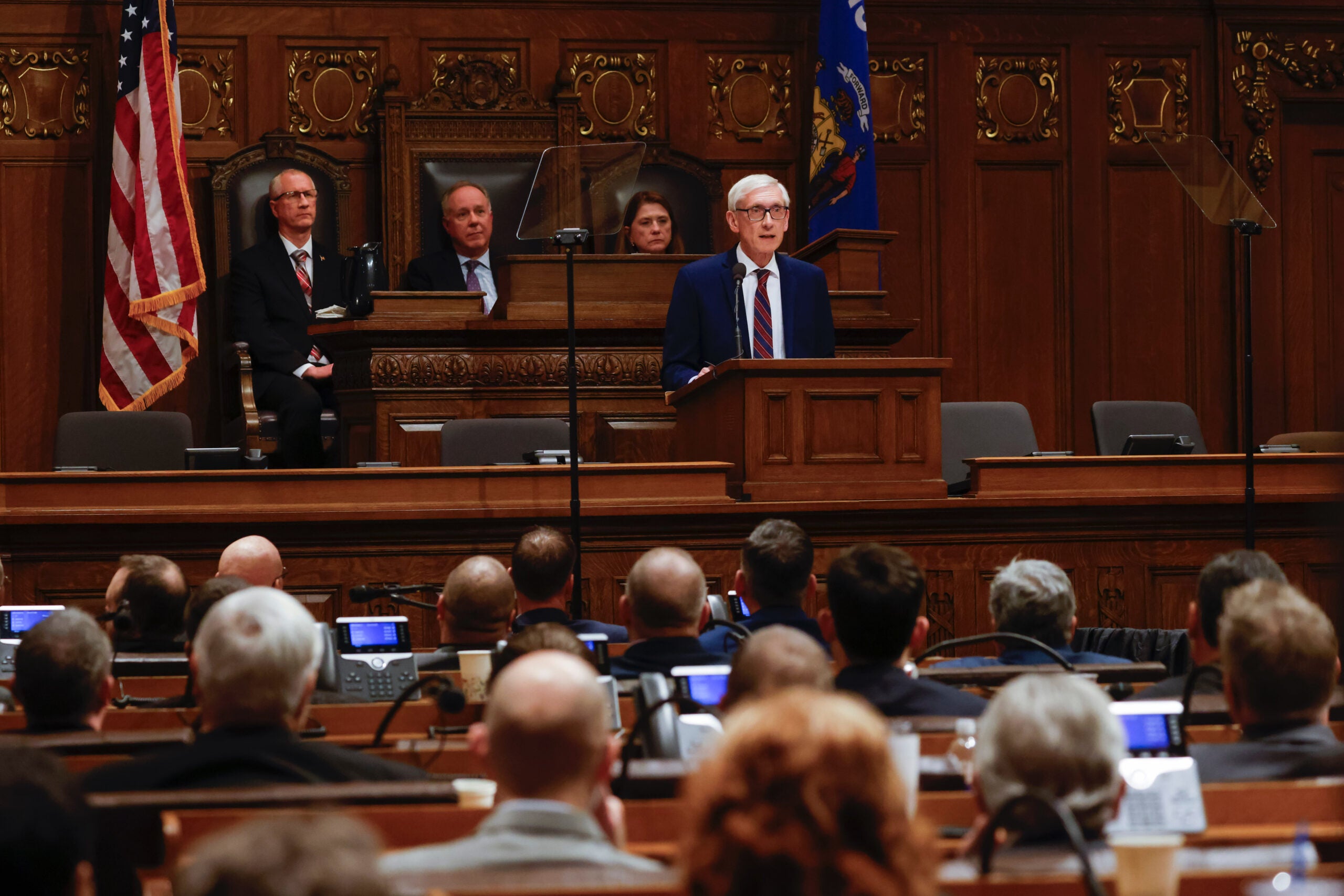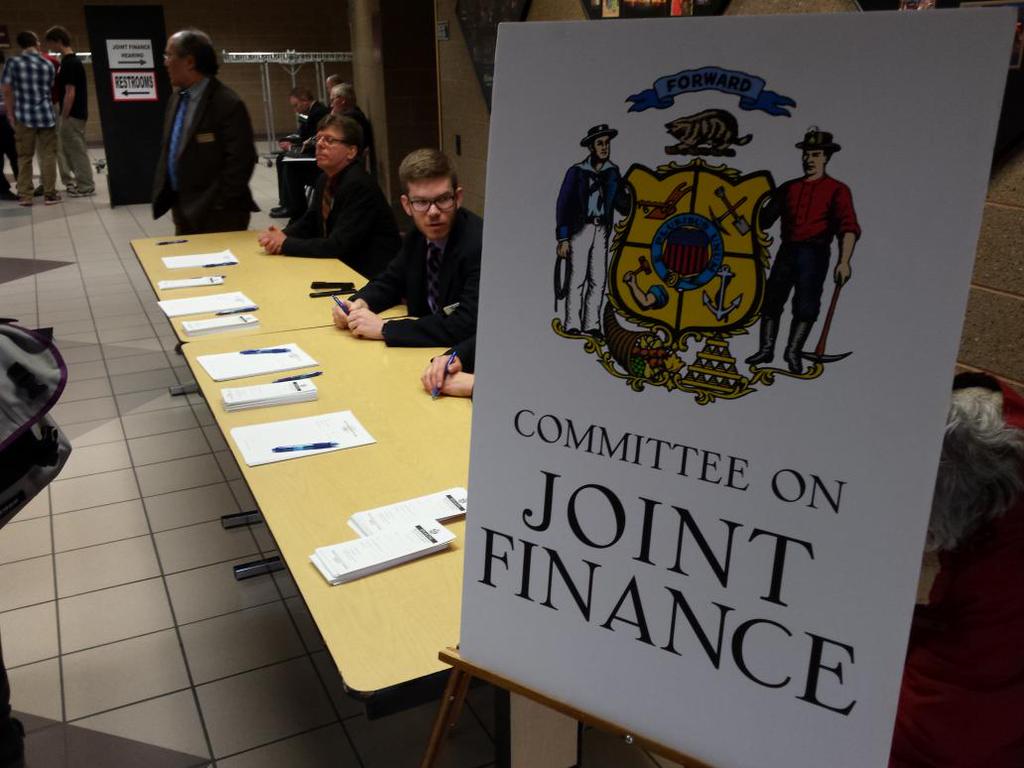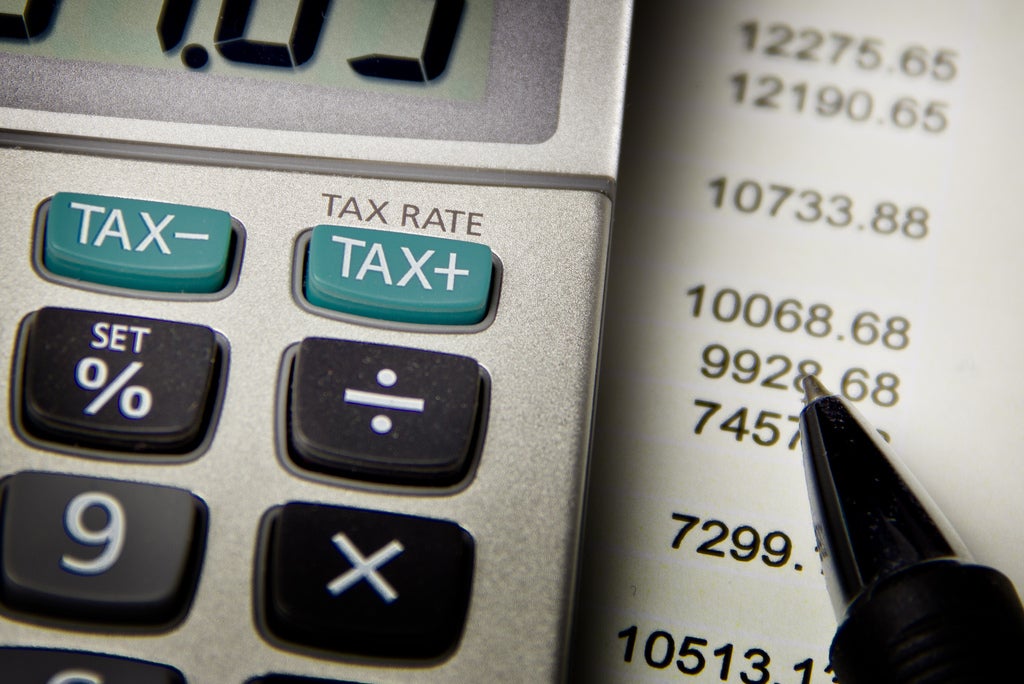The Republican leaders of the state Legislature said Tuesday that they want to use a record budget surplus to enact “transformational, once-in-a-generation tax changes,” including lowering tax rates for the state’s wealthiest residents.
But the proposal is likely a non-starter with Democratic Gov. Tony Evers, who signed a Republican-authored tax cut last year but has his own ideas for cutting taxes in the next budget.
The comments from Assembly Speaker Robin Vos, R-Rochester, and Senate Majority Leader Devin LeMahieu, R-Oostburg, are the latest signs that divided government over the next four years might look a lot like it did the last four when GOP lawmakers were frequently at odds with Evers. They could also be a sign that when it comes to the next state budget, more money means more problems.
Stay informed on the latest news
Sign up for WPR’s email newsletter.
Evers’ Department of Administration announced Monday that the state was projected to end the current two-year budget with a massive, $6.6 billion surplus. That money is on top of an additional $1.7 billion in the state’s Budget Stabilization Fund, often referred to as the rainy day fund. That means that when Evers and lawmakers draw up the next budget, they’ll begin with that money in the bank.
Speaking at a Wispolitics forum in Madison, LeMahieu was asked whether he wanted to use the surplus to move toward a flat tax, where all taxpayers pay the same tax rate, regardless of their income.
“Yes,” LeMahieu responded. “That way all taxpayers get a tax cut. But we definitely need to drive down our top rates.”
Vos said Assembly Republicans would focus on returning money that was “overpaid” by taxpayers.
“I think it’s fair to say that our first priority would be cutting taxes as much as we possibly can,” Vos said. “The second would be we’re going to keep the money in our savings account. I would rather keep it in the savings account that expand the size of government.”
Vos said a third option would be a “stalemate” where nothing occurs. Should Evers and Republicans not agree to a new budget, the current budget would continue, and the surplus go unused.
A move to a flat tax would be a dramatic step in Wisconsin, the state where the progressive income tax was born.
Under Wisconsin’s progressive income tax, people who earn up to $12,760 are taxed at a rate of 3.54 percent, people with incomes between $12,760 and $25,520 are taxed at a 4.65 percent rate, and people who earn between $25,520 and $280,950 pay a rate of 5.3 percent. The wealthiest residents — those individuals who earn more than $280,950 — pay a 7.65 percent tax rate.
While GOP lawmakers have worked to cut the lower rates, they’ve left the highest income tax bracket untouched. LeMahieu said Tuesday it was time to change that.
“You know, we’re sort of an island with our top tax rate here in Wisconsin,” LeMahieu said. “We need to drive that down.”
The discussion over how to handle the projected surplus is reminiscent of what happened ahead of the last budget debate two years ago, only this time it’s happening on a larger scale.
In early 2021, as the economic effects of the pandemic began to lift and federal aid continued to flow to Wisconsin, the state’s budget surplus grew. GOP lawmakers rewrote the budget to add an income tax cut which Evers, to the surprise of many Capitol observers, approved.
During his campaign for governor this year, as the projected surplus continued to grow, Evers called on lawmakers to return some of the money to taxpayers. When asked about LeMahieu’s comments Tuesday, a spokesperson for Evers referred to the details of the governor’s plan released in October, which included a 10 percent tax cut for individuals making less than $100,000 per year.
Evers’ office also referred to the governor’s education budget released in September, which called for a $2 billion increase to public schools. Vos indicated that he could support some increase in public school funding but only if it was paired with an expansion of the state’s private school choice program.
Evers has previously expressed skepticism about such a move, saying last week that he can’t envision signing a budget that would lower the state’s top income tax rates.
Vos and LeMahieu said Evers called both of them since winning reelection, a gesture they described as positive.
“Gov. Evers and I did speak for five minutes,” Vos said. “Which was good because that was five minutes more than in the past two years.”
Vos, who won reelection after a messy primary season that saw him spar repeatedly with former Republican President Donald Trump, was also asked Tuesday whether he planned to run again in 2024. He said Evers’ defeat of Republican challenger Tim Michels was a factor.
“I will be honest and say that if Tim Michaels had won, I had thought about riding off into the sunset,” Vos said. “Now we have Tony Evers. So obviously I’ll make a decision in the future. But I’m planning on it right now.”
Wisconsin Public Radio, © Copyright 2025, Board of Regents of the University of Wisconsin System and Wisconsin Educational Communications Board.

